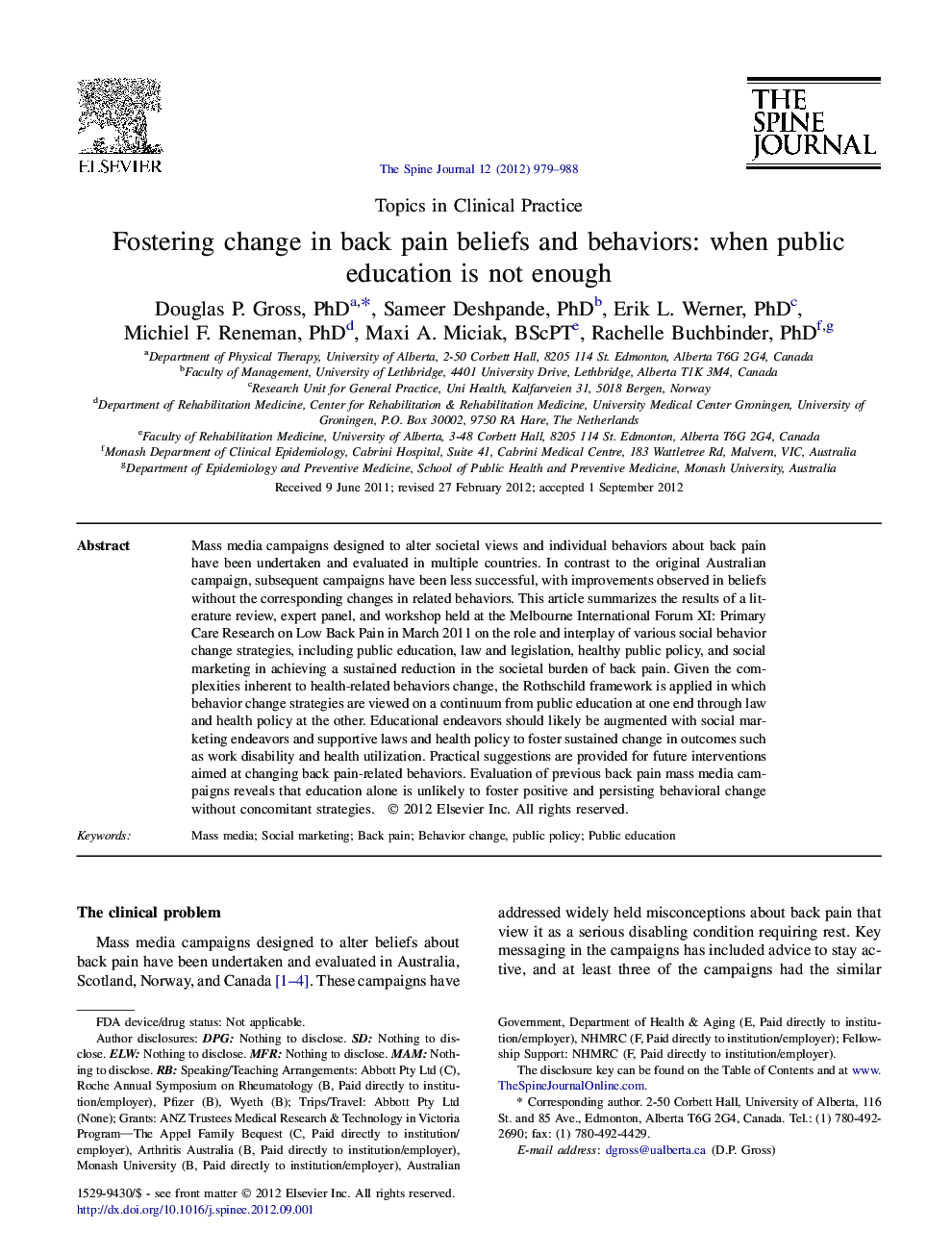| Article ID | Journal | Published Year | Pages | File Type |
|---|---|---|---|---|
| 4097901 | The Spine Journal | 2012 | 10 Pages |
Mass media campaigns designed to alter societal views and individual behaviors about back pain have been undertaken and evaluated in multiple countries. In contrast to the original Australian campaign, subsequent campaigns have been less successful, with improvements observed in beliefs without the corresponding changes in related behaviors. This article summarizes the results of a literature review, expert panel, and workshop held at the Melbourne International Forum XI: Primary Care Research on Low Back Pain in March 2011 on the role and interplay of various social behavior change strategies, including public education, law and legislation, healthy public policy, and social marketing in achieving a sustained reduction in the societal burden of back pain. Given the complexities inherent to health-related behaviors change, the Rothschild framework is applied in which behavior change strategies are viewed on a continuum from public education at one end through law and health policy at the other. Educational endeavors should likely be augmented with social marketing endeavors and supportive laws and health policy to foster sustained change in outcomes such as work disability and health utilization. Practical suggestions are provided for future interventions aimed at changing back pain-related behaviors. Evaluation of previous back pain mass media campaigns reveals that education alone is unlikely to foster positive and persisting behavioral change without concomitant strategies.
